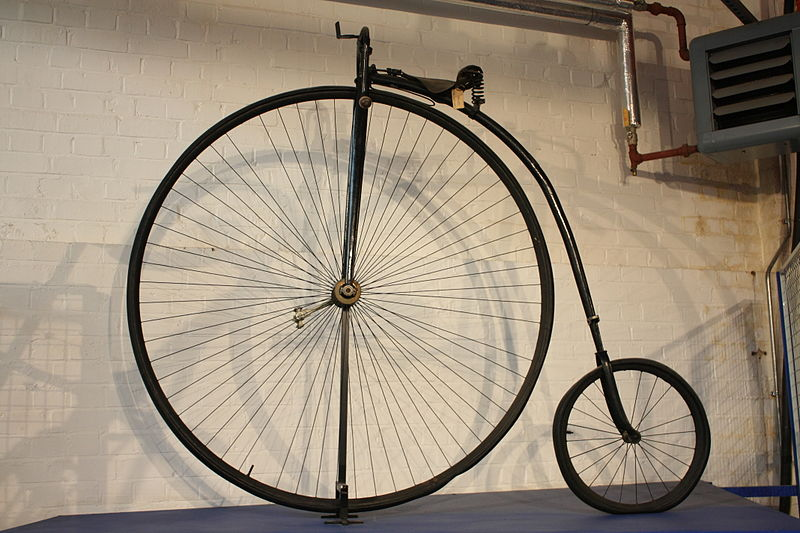
England has a rich history of innovation and invention, with countless groundbreaking discoveries and creations that have had a profound impact on the world. From scientific breakthroughs to technological advancements, English inventors have continuously pushed the boundaries of human knowledge and creativity. In this article, we will embark on a journey through English inventions, exploring notable creations along with their names and the years they were invented, showcasing the remarkable ingenuity of the English people.
Steam Engine (1712)
In 1712, English inventor Thomas Newcomen developed the first practical steam engine, known as the Newcomen Engine. Although rudimentary compared to later iterations, Newcomen’s invention marked a significant advancement in harnessing steam power for mechanical work. The steam engine played a crucial role in driving the Industrial Revolution, powering factories, mines, and transportation systems, and revolutionizing the way goods were manufactured and distributed.
Spinning Jenny (1764)
In 1764, English inventor James Hargreaves introduced the Spinning Jenny, a multi-spindle spinning frame that revolutionized the textile industry. The Spinning Jenny enabled one operator to spin multiple threads simultaneously, significantly increasing the productivity of textile mills and reducing the cost of producing yarn. Hargreaves’ invention played a pivotal role in the mechanization of textile manufacturing and laid the foundation for the factory system.
Electric Telegraph (1837)
In 1837, English inventor Sir Charles Wheatstone, along with his collaborator Sir William Fothergill Cooke, developed the electric telegraph, a groundbreaking communication device that transmitted messages over long distances using electrical signals. The electric telegraph revolutionized long-distance communication, enabling rapid transmission of information and laying the groundwork for the modern telecommunications industry. Wheatstone and Cooke’s invention paved the way for the development of the telegraph network and the eventual advent of the telephone and internet.
Vulcanized Rubber (1839)
In 1839, English inventor Charles Goodyear discovered the process of vulcanization, a chemical treatment that strengthens and stabilizes rubber, making it more durable and elastic. Goodyear’s invention transformed the properties of rubber, making it suitable for a wide range of applications, including tires, waterproof clothing, footwear, and industrial seals. Vulcanized rubber revolutionized numerous industries and remains an essential material in modern manufacturing.
Theory of Evolution by Natural Selection (1859)
In 1859, English naturalist Charles Darwin published his seminal work “On the Origin of Species,” introducing the theory of evolution by natural selection. Darwin’s theory revolutionized our understanding of the natural world, proposing that species evolve over time through a process of variation, selection, and adaptation to their environment. Darwin’s groundbreaking ideas laid the foundation for modern biology, genetics, and ecology, shaping our understanding of life on Earth.
Telephone (1876)
In 1876, English-born inventor Alexander Graham Bell patented the first practical telephone, a device capable of transmitting sound electronically over long distances. Bell’s invention revolutionized communication, enabling people to communicate with each other over vast distances without the need for physical proximity. The telephone laid the groundwork for the modern telecommunications industry and paved the way for subsequent innovations such as the mobile phone and internet telephony.
Television (1926)

In 1926, English inventor John Logie Baird successfully demonstrated the first working television system, capable of transmitting moving images over a distance. Baird’s invention marked a significant milestone in the development of television technology, laying the foundation for the mass adoption of television as a form of entertainment and communication. Baird’s pioneering work in television technology paved the way for the emergence of the global broadcasting industry.
Penicillin (1928)
In 1928, Scottish bacteriologist Alexander Fleming, working at St. Mary’s Hospital in London, accidentally discovered the antibiotic properties of penicillin, a mold that inhibited the growth of bacteria. Fleming’s discovery of penicillin revolutionized medicine, ushering in the era of antibiotics and transforming the treatment of bacterial infections. Penicillin has saved countless lives and remains one of the most important medical discoveries in history.
Jet Engine (1937)
In 1937, English engineer Frank Whittle patented the first jet engine, a revolutionary propulsion system that used compressed air to generate thrust. Whittle’s invention laid the foundation for modern aviation, enabling faster, more efficient, and more powerful aircraft than ever before. The jet engine revolutionized air travel, military aviation, and aerospace technology, shaping the modern world and opening up new frontiers in transportation and exploration.
DNA Structure (1953)
In 1953, English scientists James Watson and Francis Crick, along with their colleague Rosalind Franklin, elucidated the structure of DNA, the molecule that carries genetic information in living organisms. Watson and Crick’s discovery of the double helix structure of DNA revolutionized our understanding of genetics and molecular biology, laying the foundation for the field of molecular genetics and the Human Genome Project. Their groundbreaking work paved the way for advances in medicine, agriculture, and biotechnology.
Conclusion
English inventors have made countless contributions to human knowledge, creativity, and progress, shaping the course of history with their groundbreaking discoveries and innovations. From the steam engine to the internet, English inventions have revolutionized industries, transformed societies, and improved the quality of life for people around the world. As we celebrate the ingenuity and creativity of English inventors, let us recognize the enduring legacy of their contributions and the profound impact they continue to have on our lives.


